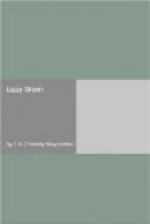As he had not been permitted to go home, his next consolatory thought was that his mother would come out at once to see him. This hope he clung to day after day, but he clung to it in vain. It mattered not that, every-time the shop-door opened when he was in it, he turned with a quickened pulse to see if it were not his mother, or that he would pause and listen, when back in the house, to hear if the strange voice that came suddenly from the shop, were not the voice of her he so longed to see. She came not; nor was any word from her brought to him.
And thus passed the whole of the severe month of January, the long and cold winter adding greatly to his other causes of suffering.
CHAPTER VIII.
Henry Gaston’s treatment by sharp.
A boy of more robust constitution and fuller of blood than Henry Gaston, with that activity which a fine flow of animal spirits and a high degree of health give, would have cared little for the exposure to which he was subjected at Sharp’s, even if clad no more comfortably. But Henry had little of that healthy warmth natural to the young. He was constitutionally delicate, and this caused him to feel more keenly the chilling intensity of the cold to which he was frequently exposed without sufficient clothing. His whole dress, intended to protect him from the cold of a remarkably severe and trying winter, was a thin shirt, the remains of one worn for nearly a year; the jacket and trowsers, thin and threadbare, that Mrs. Sharp had made for him out of some worn-out garment which her husband had thrown aside, and which were now rent in many places; a pair of dilapidated yarn stockings, with feet like a honey-comb. His shoes, the pair given him by his mother, had been half-soled once, but were again so far gone that his stockings protruded in several places, and yet neither his master nor mistress seemed to take any notice of their condition, and he was afraid to ask for a new pair. When it rained or snowed, or, worse, when it rained with or after the snow, as it had done several times within a week, his shoe were but a poor protection for his feet. The snow and water went through them as through a sieve.
Before the first of February, the poor boy was almost crippled with the chilblains. Through the day, he hobbled about as best he could, often in great pain; and at night the tender skin of his feet, irritated by the warmth of the bed, would keep him awake for hours with a most intolerable burning and itching.
“Why don’t you walk straight? What do you go shuffling along in that kind of style for?” said Sharp to him one day, toward the last of January.
“My feet are so sore,” replied Henry, with a look of suffering, blended with patient endurance.
“What’s the matter with them, ha?” asked his master glancing down at the miserable apologies for shoes and stockings that but partially protected the child’s feet front the snow whenever he stepped beyond the threshold.




